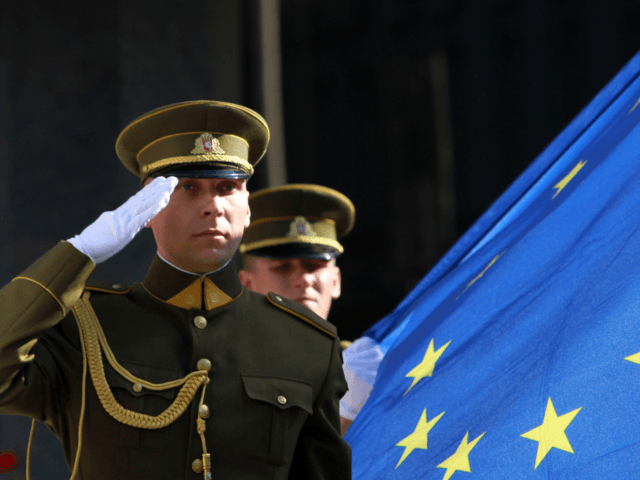A leading Member of the European Parliament has called for Brussels to speed up in efforts to craft a fully-fledged EU army in order to rely less on the United States following President Joe Biden’s disastrous withdrawal from Afghanistan.
While predictions of the European Union developing its own military force were long derided as “conspiracy theories” by anti-Brexit activists, the bloc is edging closer to making it a reality.
The head of the influential European People’s Party group of MEPs in the European Parliament, Manfred Weber said on Sunday that the EU requires its own military force.
“The national armies, of course, remain the main pillars of defence. But, step by step, we need to build European capacities, such as a European reaction force with a few thousand men. And we also need a cyber-defence brigade,” Weber said per POLITICO.
The head of the largest parliamentary faction in Brussels said that while EU member states collectively have hundreds of thousands of troops, they were unable to secure the Kabul airport.
Weber went on to say that an EU Army would save billions of euros and serve to make the bloc more independent from the United States.
The European Union took its first major step in the formation of an EU army in 2017 when 23 EU member-states signed a pact committed to the establishment of a Common Defence Fund to provide for a mutual military force.
In May, fourteen EU countries — spearheaded by France and Germany — called for the creation of a 5,000-soldier rapid response unit to deal with international crises.
Following President Joe Biden’s Afghanistan withdrawal the calls within Brussels to become less reliant on the United States have only increased.
Last week, for example, the president of the European Council, Charles Michel said the European Union will look to increase its “strategic autonomy“.
“The Afghan crisis only reinforces and solidifies a conviction that I have held for a while and that is shared with many others. It is the idea of European strategic autonomy, which aims at strengthening our ability to influence in accordance with our interests and values while also placing emphasis on our ability to act,” the Belgian politician said.
Mr Michel also highlighted the chaos surrounding the evacuation from Afghanistan for the need for the EU to be able to act independently, expressing concern that the European Union as “a military power made up of twenty-seven nations” was unable to “independently guarantee—without the backing of the United States— the necessary assistance to evacuate its citizens and the Afghans who supported them.”
The notion of a fully-realised EU Army was criticised by NATO Secretary-General Jens Stoltenberg, who warned that it might detract from the defence capabilities of the alliance.
While Mr Stoltenberg welcomed more European contributions to defence, as currently, only eight EU member-states contribute the agreed-upon minimum of two per cent GDP spent on defence — he said that an EU Army “can never replace” NATO, adding that “We need to make sure that Europe and North America band together”.
“Any attempt to weaken the bond between North America and Europe will not only weaken Nato, it will divide Europe,” Mr Stoltenberg warned.
Follow Kurt Zindulka on Twitter here @KurtZindulka

COMMENTS
Please let us know if you're having issues with commenting.